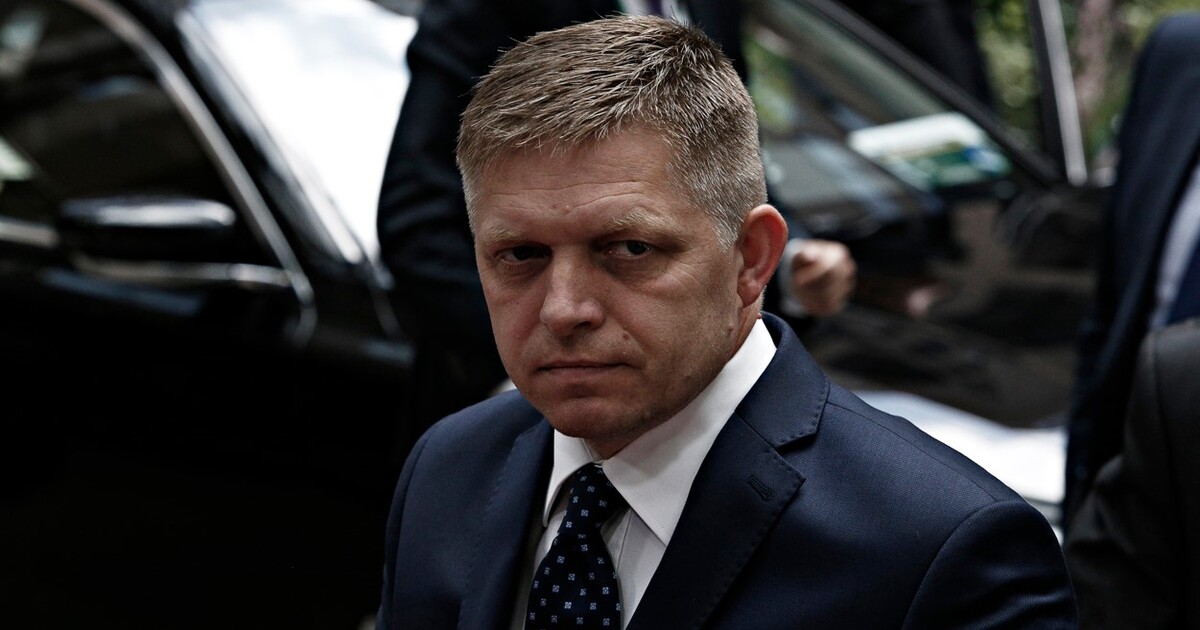Beyond Slovakia: The New Politics of Hate Takes Root In Europe
So far, today’s European politicians have not risen to the challenge of building a tolerant inclusive Europe. Might Robert Fico see the light?
May 23, 2024

A Strategic Assessment Memo (SAM) from the Global Ideas Center
You may quote from this text, provided you mention the name of the author and reference it as a new Strategic Assessment Memo (SAM) published by the Global Ideas Center in Berlin on The Globalist.
There is a new divide in politics in Europe. The 20th century ideological divide between left and right is still there, but now the new powerful emotions of outright hate have come to the fore in an increasing number of countries.
A tragedy waiting to happen, but…
Which is why the shooting of Slovakian Prime Minister Robert Fico, out campaigning for his party’s candidates for the European Parliament election in early June, was a tragedy waiting to happen.
Like British MP Jo Cox, who was shot by an English nationalist during the Brexit campaign in summer 2016, Fico fell to the interpersonal hatred that has become integral to 21st century politics.
Of course, Fico himself promoted ultra-nationalist politics, with massive corruption benefiting his own nationalist populist SMER party more in line with his neighbor Viktor Orban, the autocrat who runs Hungary.
A journalist who exposed the links between Fico’s SMER and corrupt, criminal business operators in Slovakia was killed some years ago.
Goodbye to democracy as a shield against hate?
Both Orban and Fico, but also their West European political soulmates Marine Le Pen and Giorgia Meloni, have made it a habit to attack the standard norms of democracy.
Gone are the days when democracy, based on the rules of the post-1945 settlement, was seen as a shield against fascism and incitement to hate in Europe.
In decades past, it did not matter much whether Conservatives, Christian Democrats or Social Democrats, Labour or Liberals entered government. It was even possible to offer one or two ministerial posts to far-right or communist politicians.
In Austria and France, two socialist leaders, Bruno Kreisky and François Mitterrand, had far-right or communist ministers in their governments.
The tradition of rejecting Russian imperialism: No longer?
Most European politicians (aside from the West European Communists) on the whole rejected Russian imperialism which ruled parts of Europe between 1945 and 1990.
But now, a lot of political leaders flout that rule. Slovakia’s Fico, Hungary’s Orban, Italy’s Salvini, France’s Zemmour, Serbia’s Vucic, England’s Farage, Poland’s Kaczynski, Germany’s AfD, the Dutch Wilders, Swedish Democrats or English Reform party members openly demonstrate great sympathies with Putin’s Russia.
The European Parliament and the politicians of hate
In the European Parliament elections concluding on June 9th, the politics of hate will make gains. The common goal of politicians like Orban and Fico is to reshape Europe into an updated 1930s form of nationalist separate states.
They are determined to promote their own interests over and above any wider European partnership and co-operation, the European wide rule of law, open frontiers or common human rights values.
The far-left and the politics of hate
Then there is the far-left, which engages in its own politics of hate. It brands the efforts of any social democratic or moderate Labour party as betrayal by enemies on the moderate left.
The hate language on the left has led to massive splits in parties who, so far in the 21st century, had already seen a significant reduction in the election-winning potential of the democratic left in Euro-Atlantic democracies, notably in France, Italy and eastern Europe.
Hate politics is here to stay
To be sure, social media now magnifies the politics of hate. It spreads it far more effectively and insidiously than what the far-right and far-left were able to achieve in the era of four-page small-print leaflets crammed with unreadable text.
Hate politics is here to stay. But few seem willing to really examine the phenomenon, let alone work out ways of defending democracy against the new politics of hate spreading across Europe and the United States, to the benefit of Putin, Xi and their supporters.
Another Churchillian moment?
In the summer of 1946, Winston Churchill traveled to the United States to announce an “Iron Curtain” had fallen across Europe, dividing European nations into democracies and those controlled by Russia.
Russia has certainly returned to being a major troublemaker – not just with its invasion of Ukraine, but also with its 21st century project of disaggregating Europe into weak, bickering nation states.
It eagerly collaborates with Islamists and other identity ideologues refusing to respect any of the Enlightenment rules of freedom of expression, respect for women or states living under democratic rule of law.
Fico’s response
So far, today’s European politicians have not risen to the challenge of building a tolerant inclusive Europe.
One can only dream of Robert Fico returning to the political stage not – as is to be feared – full of vengeance, but full of restraint and a clear-eyed, indeed very personal view of where the politics of hate can lead a country, if not a continent.
In all likelihood, however, things will get worse before they get better.
Takeaways
The 20th century ideological divide between left and right is still there, but now the new powerful emotions of outright hate have come to the fore in an increasing number of countries.
Interpersonal hatred has become integral to 21st century politics. Gone are the days when democracy, based on the rules of the post-1945 settlement, was seen as a shield against fascism and incitement to hate in Europe.
Most European politicians (aside from the West European Communists) on the whole rejected Russian imperialism which ruled parts of Europe between 1945 and 1990.
In the European Parliament elections concluding on June 9th, the politics of hate will make gains. The common goal of politicians like Orban and Fico is to reshape Europe into an updated 1930s form of nationalist separate states.
The far-left engages in its own politics of hate. It brands the efforts of any social democratic or moderate Labour party as betrayal by enemies on the moderate left.
Social media now magnifies the politics of hate. It spreads it far more effectively than what the far-right and far-left were able to achieve in the era of four-page small-print leaflets crammed with unreadable text.
Russia eagerly collaborates with Islamists and other identity ideologues refusing to respect any of the Enlightenment rules of freedom of expression, respect for women or states living under democratic rule of law.
One can only dream of Robert Fico returning to the political stage full of restraint and a clear-eyed, indeed very personal view of where the politics of hate can lead a country, if not a continent.
A Strategic Assessment Memo (SAM) from the Global Ideas Center
You may quote from this text, provided you mention the name of the author and reference it as a new Strategic Assessment Memo (SAM) published by the Global Ideas Center in Berlin on The Globalist.


